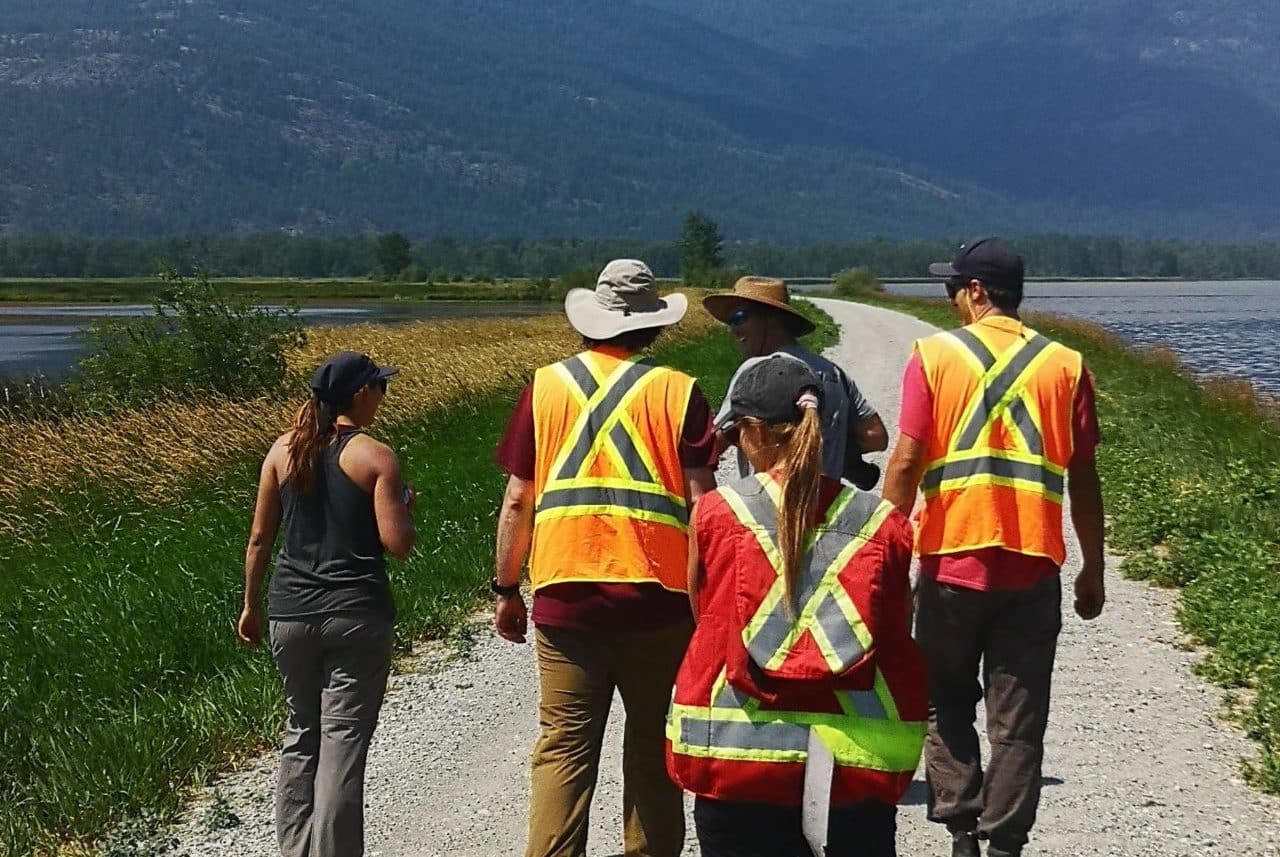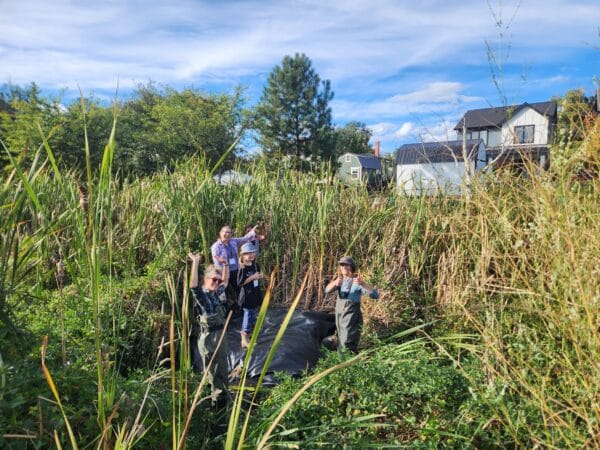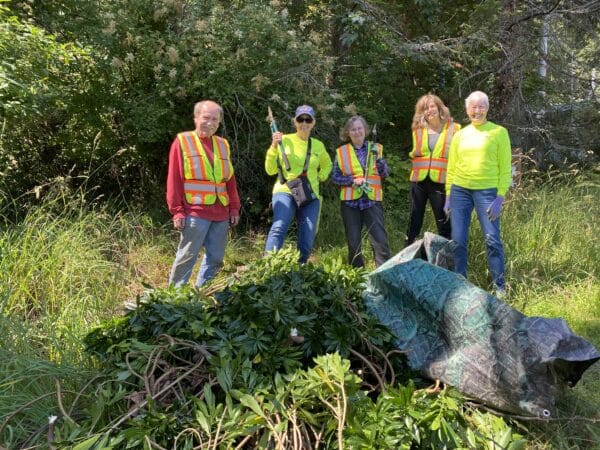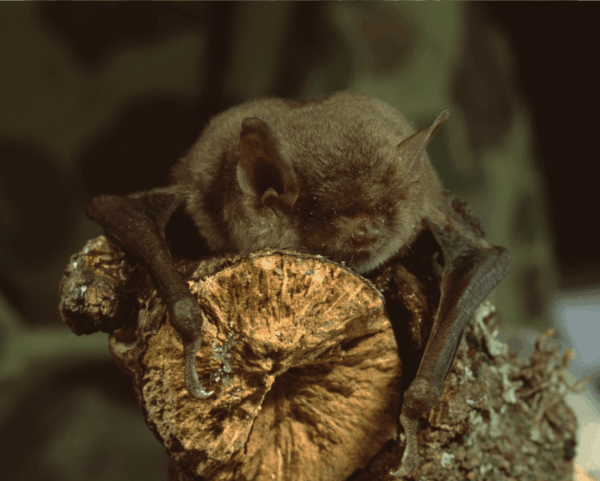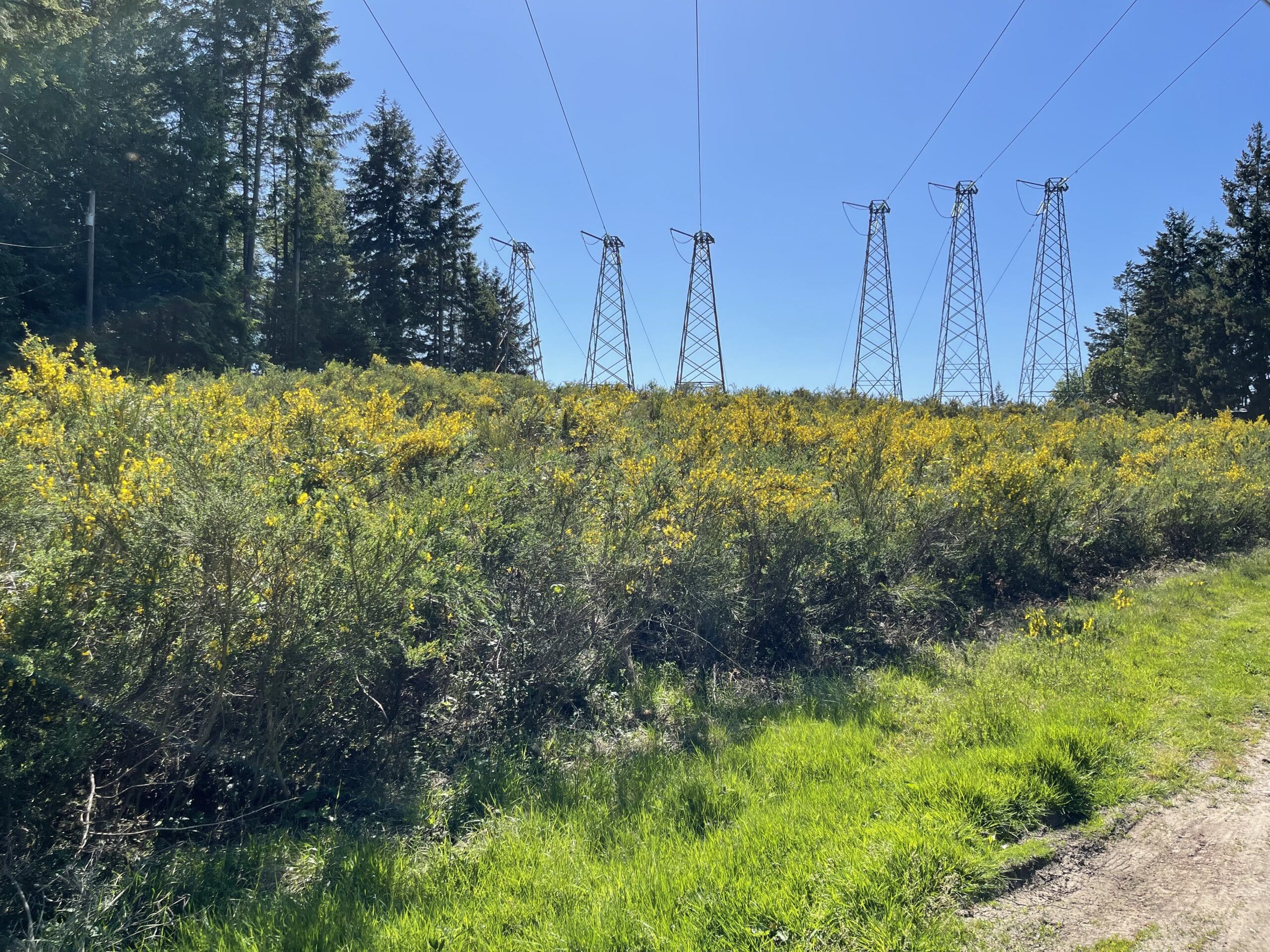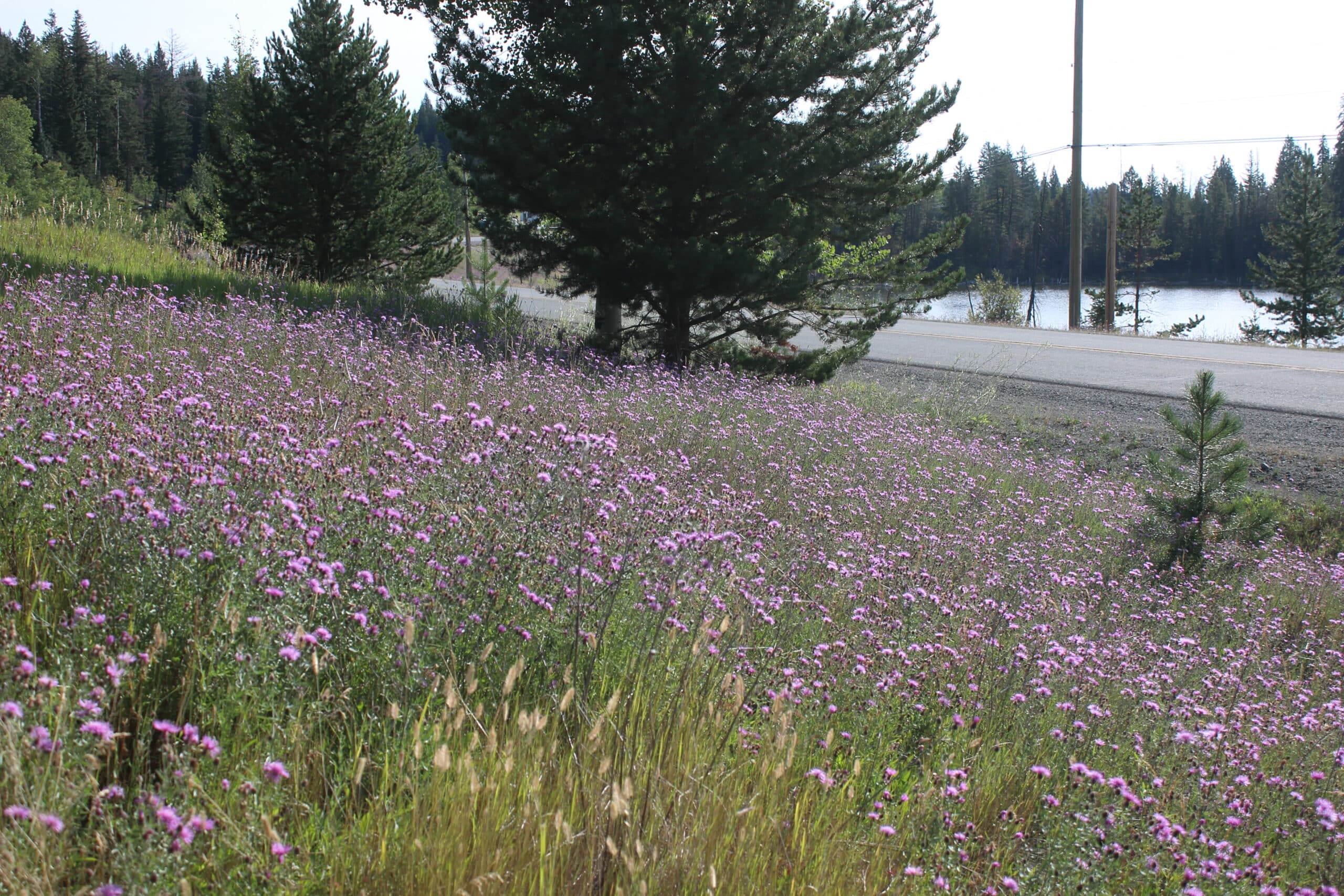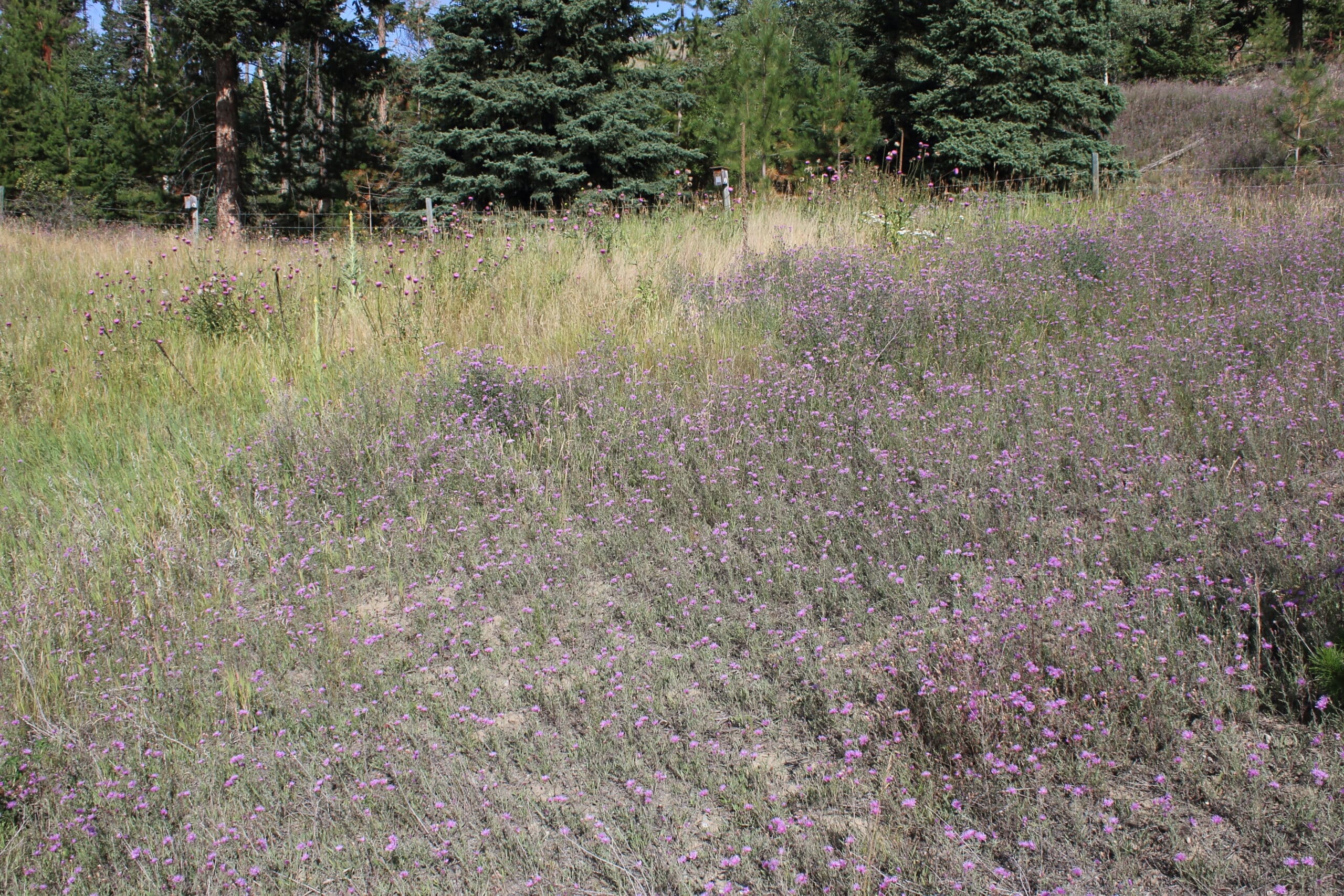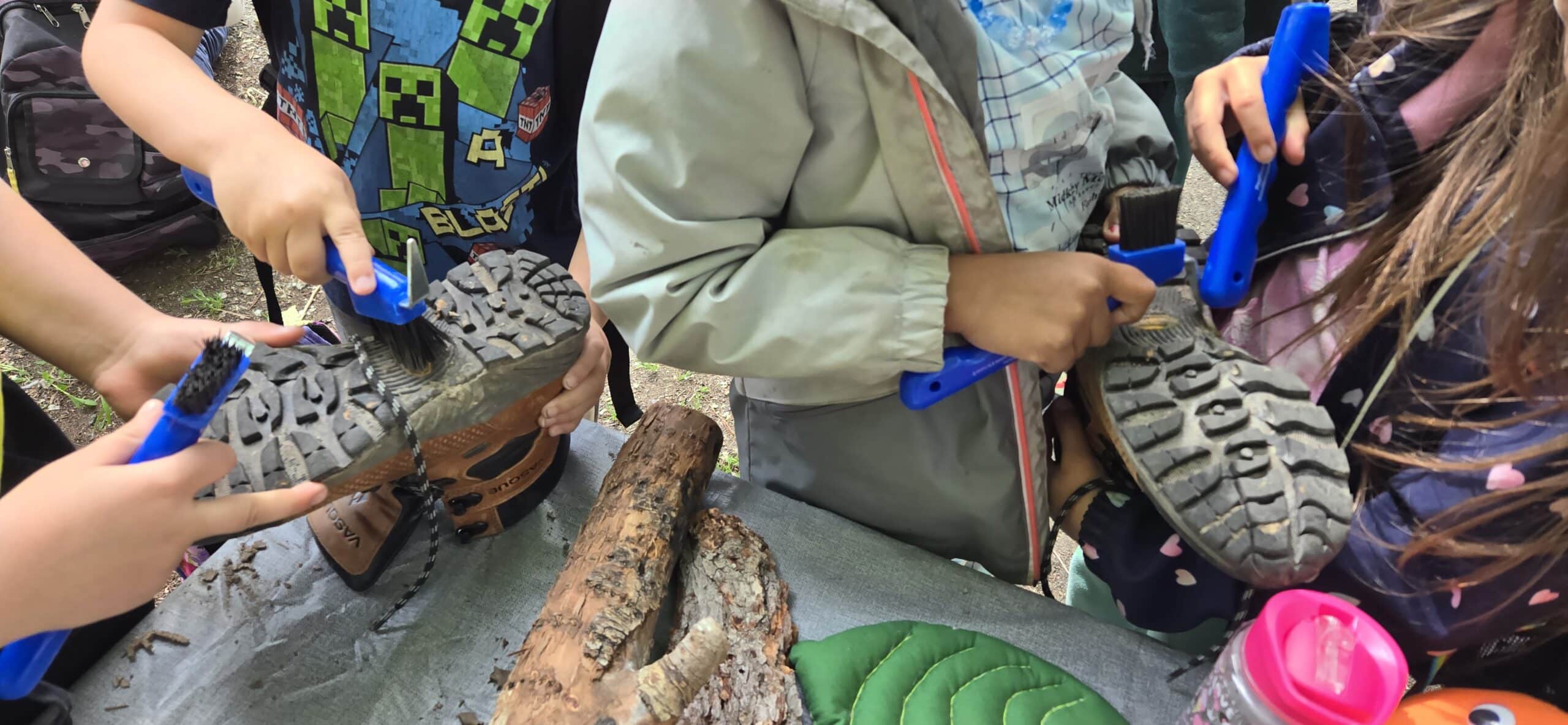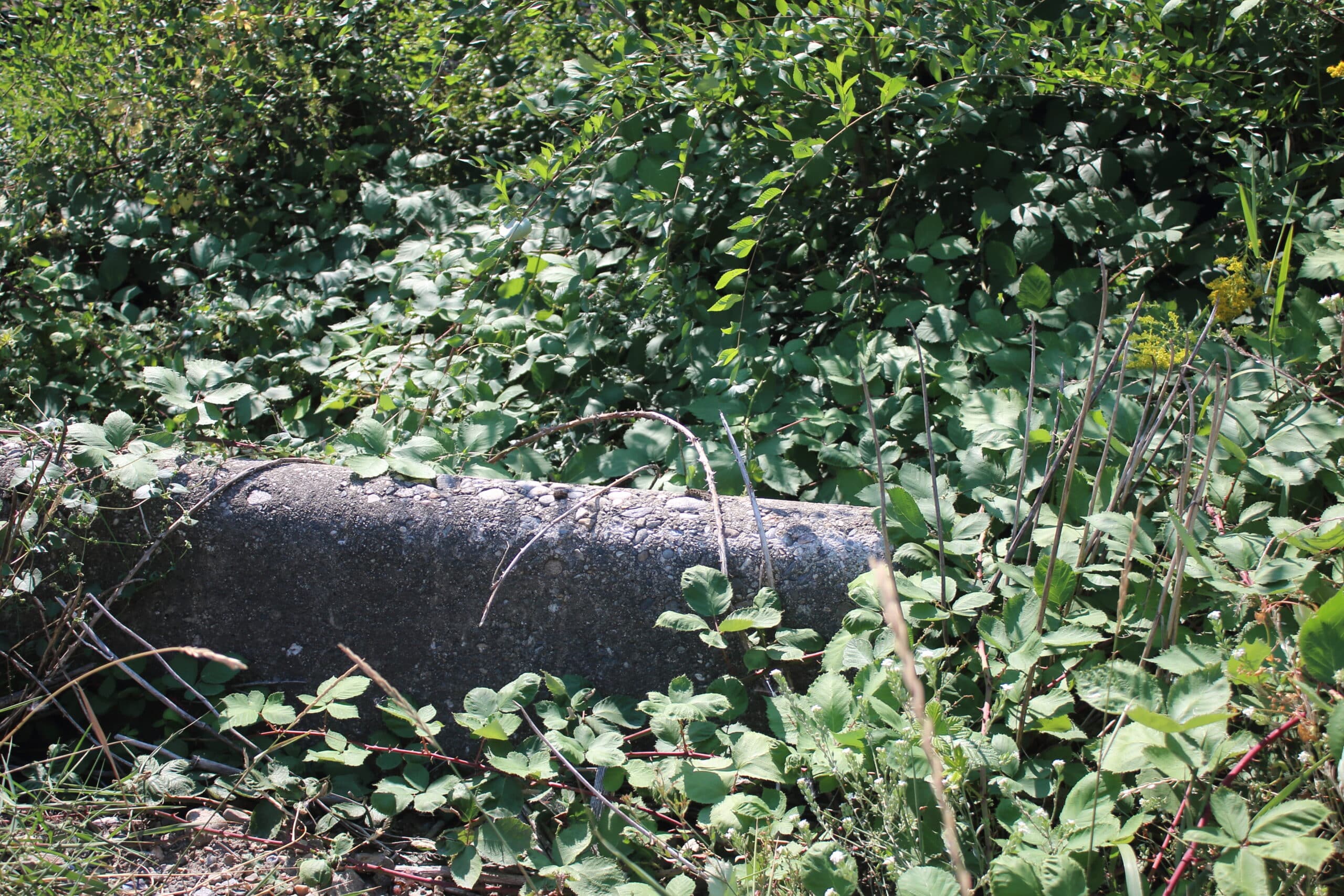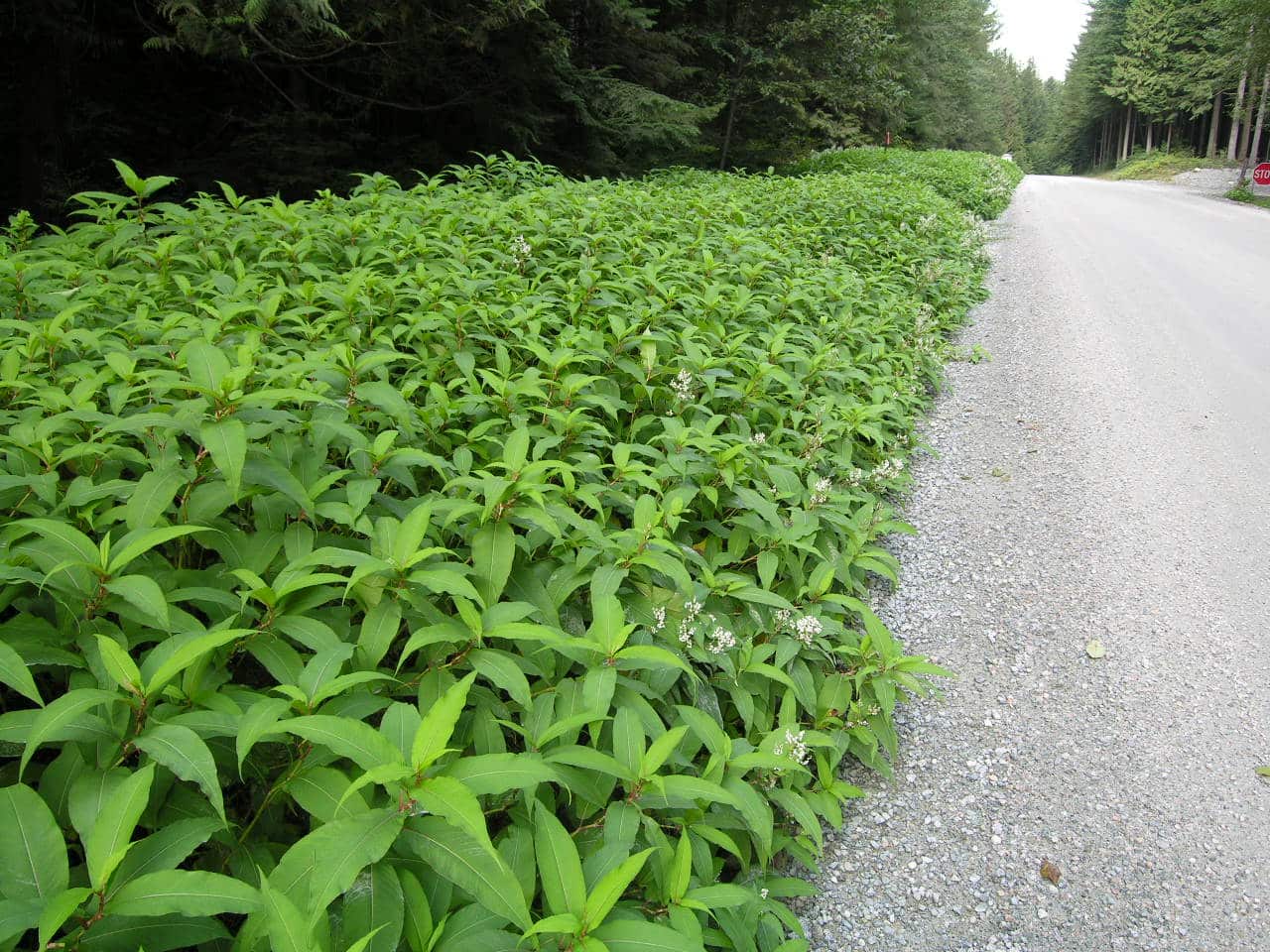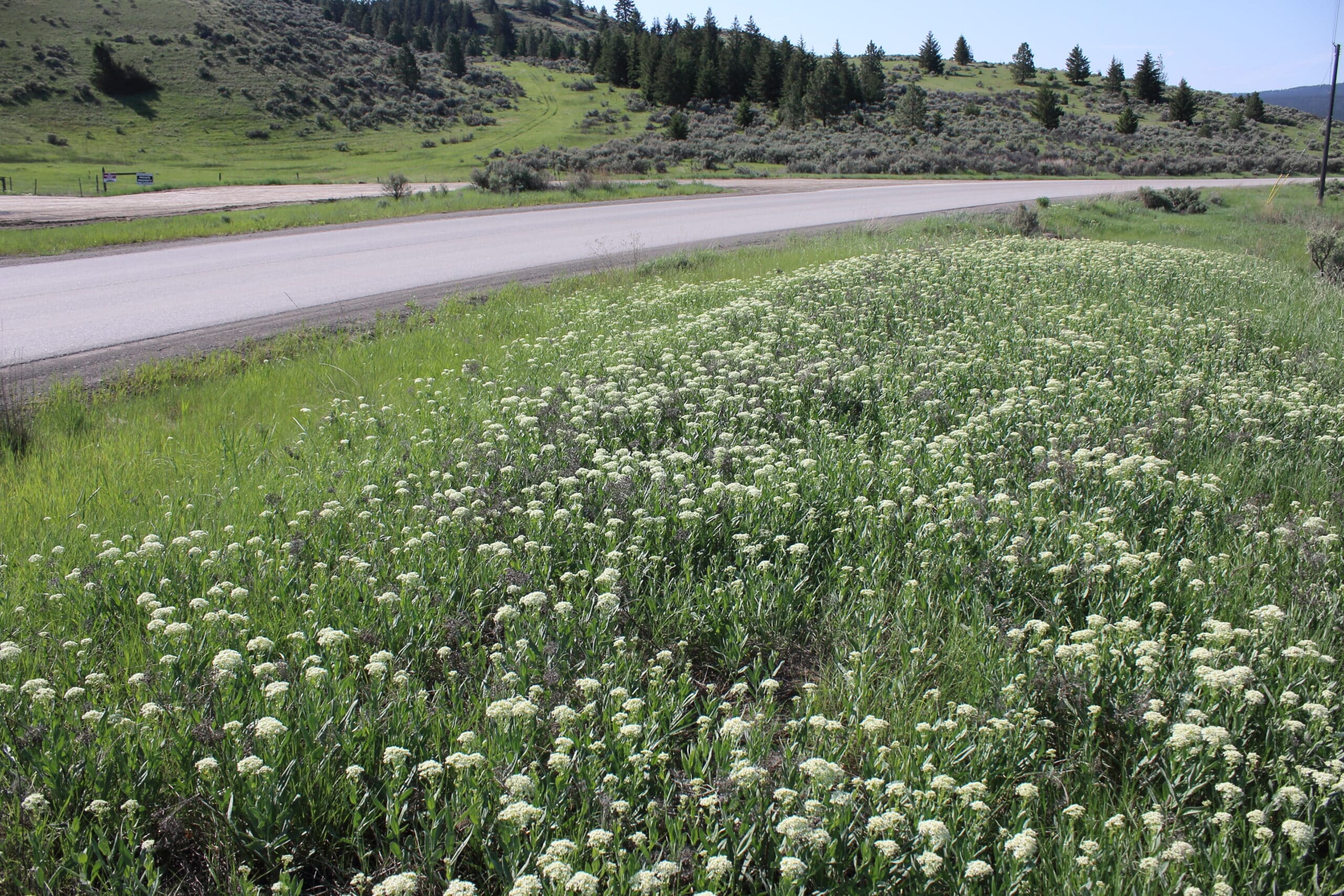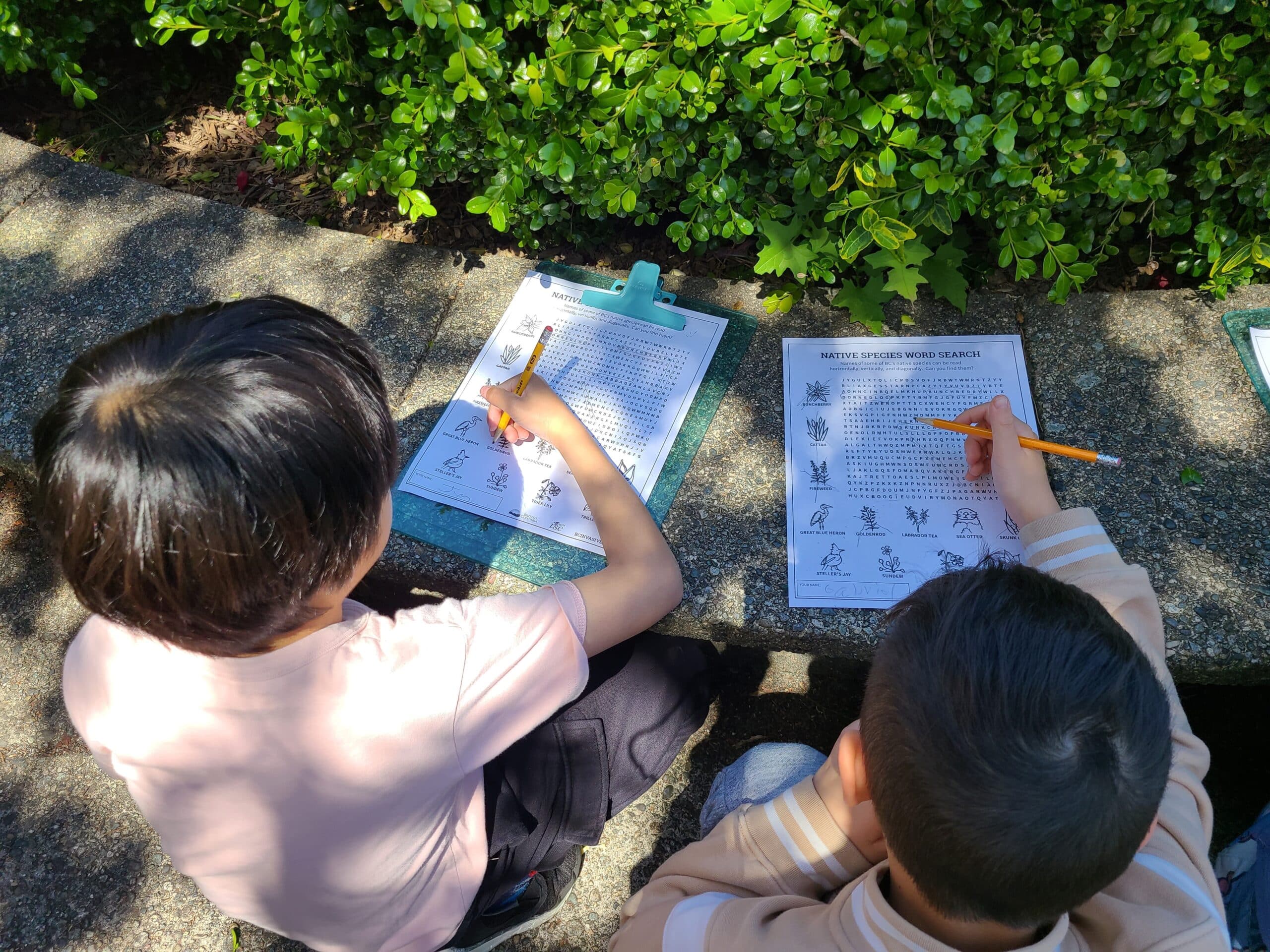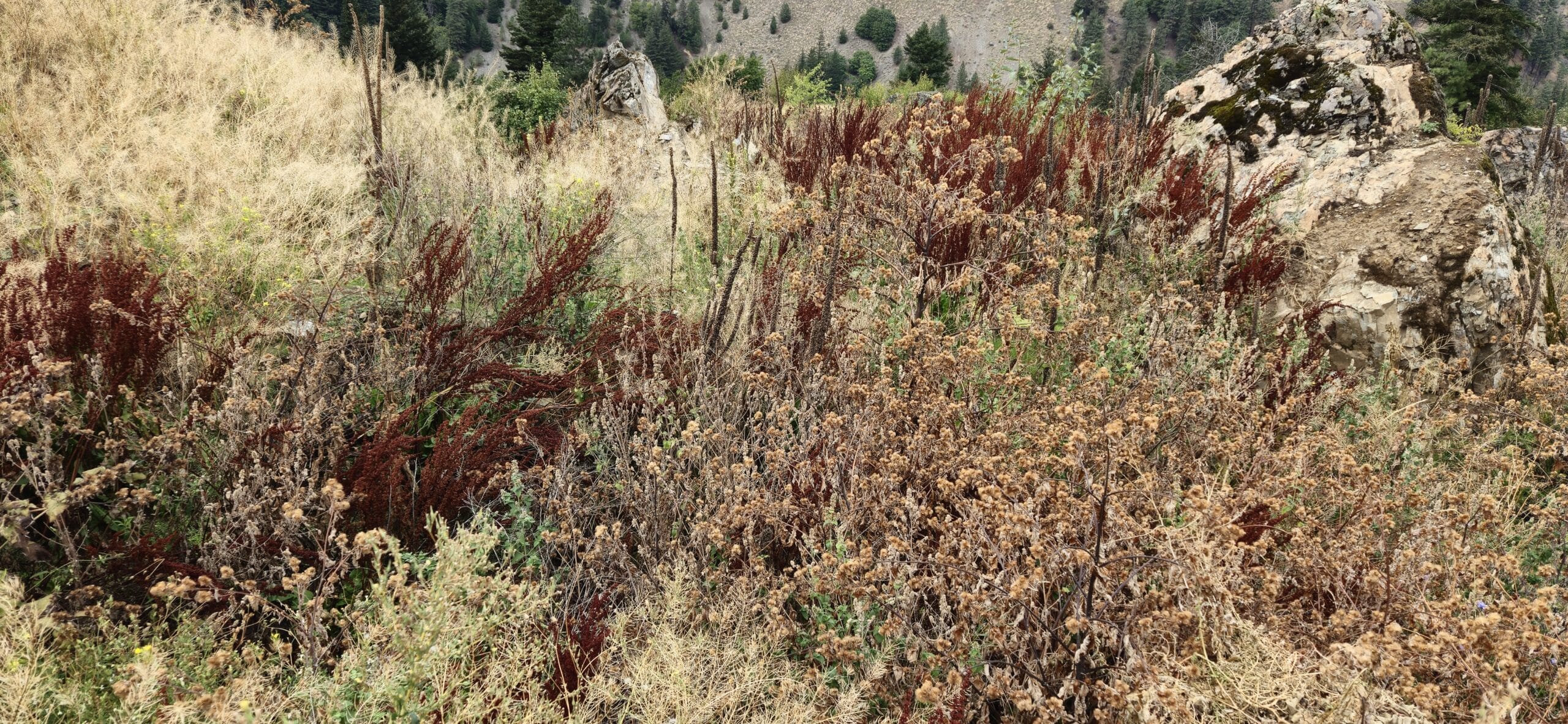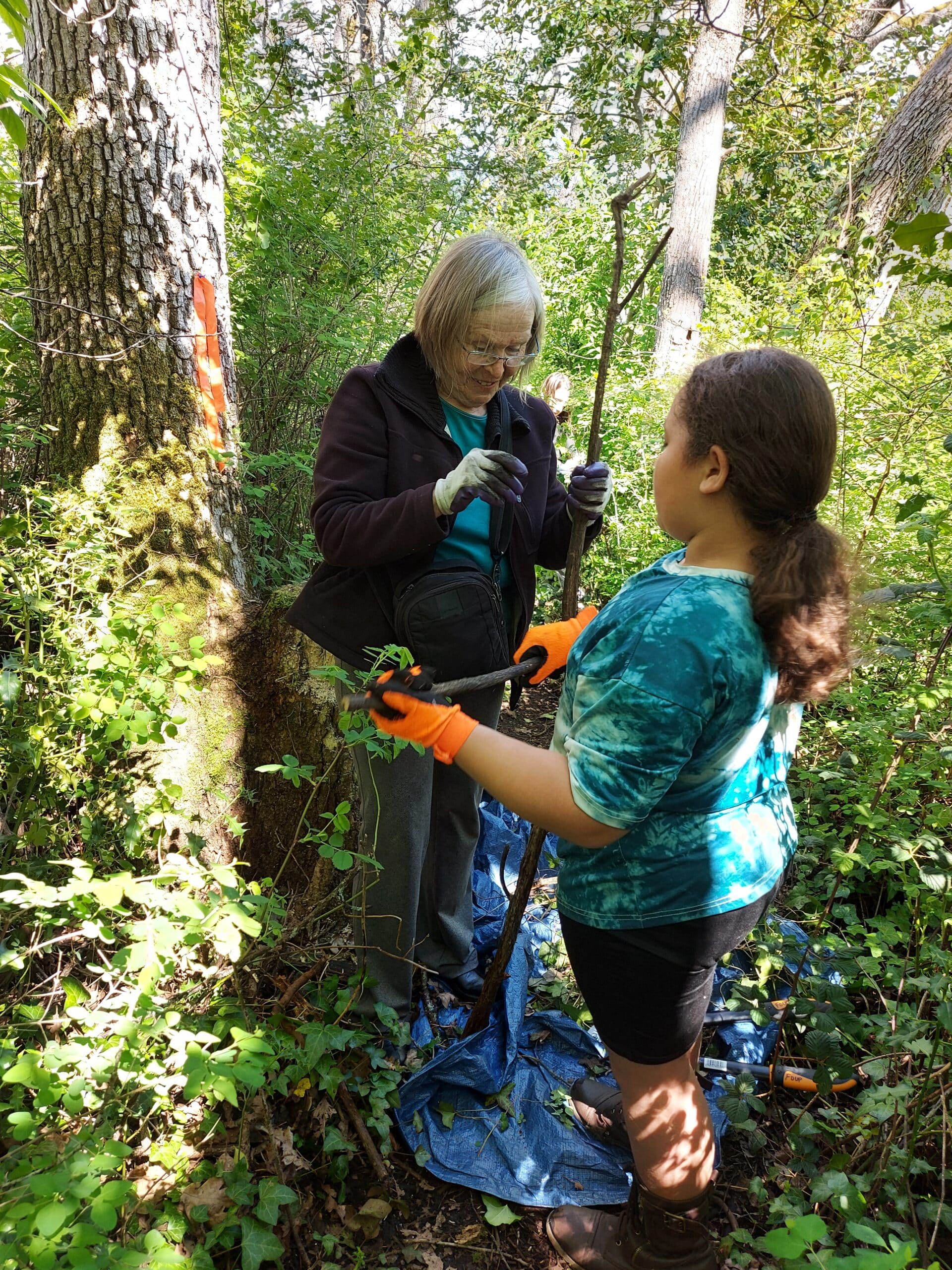By Ksenia Kolodka | June 3rd, 2022
Since the start of May, our Stronger BC Action Teams have been in the field managing and removing invasive species in nine BC communities including Campbell River, Nanaimo, Surrey, Abbotsford, Kamloops, Salmon Arm, Quesnel, Nelson, and Cranbrook. What they do in a day makes a measurable difference on the ground. It takes a special person to oversee each project, guide the field team, lead on safety, and inspire this important work.
From completing paperwork behind-the-scenes, to managing a group of Action Team members, to pulling up sturdy bushes of Himalayan blackberry, our Action Team supervisors are more like superheroes.
One month into the 2022 field season, we caught up with a few of these key leaders, as they get into the weeds with their teams. If you’ve ever wondered what makes someone interested in working with invasive species or you’re curious about a memorable day in the field, Lindy Lin, Callie Bouchard, Torin Kelly and Briana Walter share some fascinating tales! Say hello to four of our fabulous 2022 Action Team supervisors!
What made you interested in working with invasive species?
Lindy: When I was still in Selkirk College Recreation, Fish and Wildlife program last summer, I wanted to work in a position that would make a positive change to our natural environment, so I worked as a Nelson Action Team member last summer and felt really fulfilled after the work term.
Callie: I became interested in invasive species through all the time I spend in the outdoors and gradually watching more invasive plants take over more space than the native plants I grew up enjoying, so keeping things under control as much as I can and keeping BCs biodiversity strong has become more and more important to me over the last few years.
Torin: In school when we learned about invasive species impact on BC’s biodiversity, it really kick-started my interest with invasive species (plants & animals). I also figured it would be my active contribution to helping slow the effects of climate change in BC.
Briana: I have been interested in working with the environment for a long time. Working with invasive species is one way we can help protect BCs natural biodiversity and I want for play a part! My background is marine biology, so I am especially interested in the management of the European green crab, as well as the different Invasive fish species that are around.
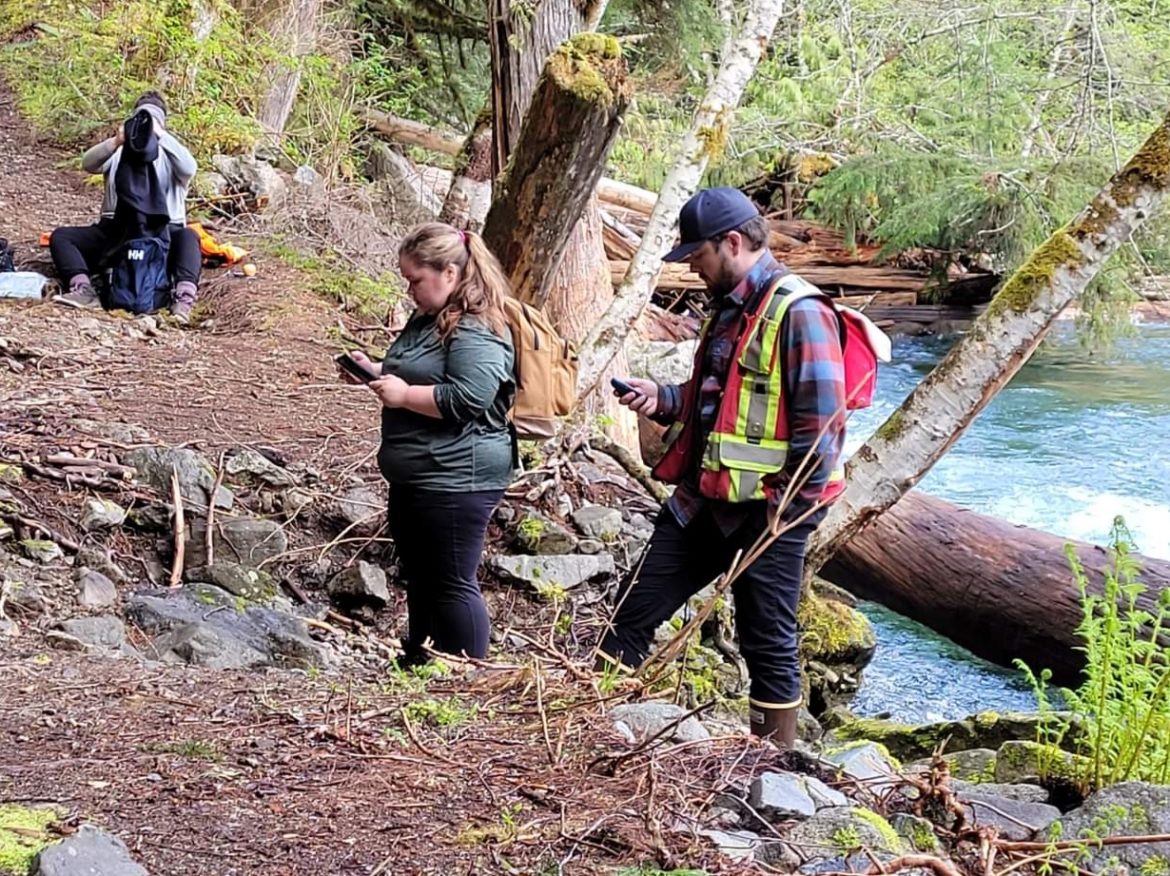
What has been your most memorable site so far?
Lindy: A Scotch broom site in a small community in Glade, BC, about 20 minutes north of Castlegar.. Our team in 2021 removed a patch of Scotch broom on MOTI (Ministry of Transportation and Industry) right of way. Then we returned to the site to monitor and reapply manual treatment a week ago, when only small plants and shoots were visible. The treatment success and visible difference from the 2021 mass manual treatment was very satisfying. The residents in the area remembered us and were very thankful for our efforts because the site was adjacent to their agricultural property.
Callie: Most memorable site so far is a Retention Pond that will soon be a Park. It’s home to many ducks and this spring has brought many sweet ducklings that have been a joy to watch grow.
Torin: Beautiful Chilliwack Lake Provincial Park. We surveyed the trails and campground and found nothing but beautiful views and some very confident Canada jays who were hungry for my grapes. It was also a great time to learn about my teams’ different interests in the natural world.
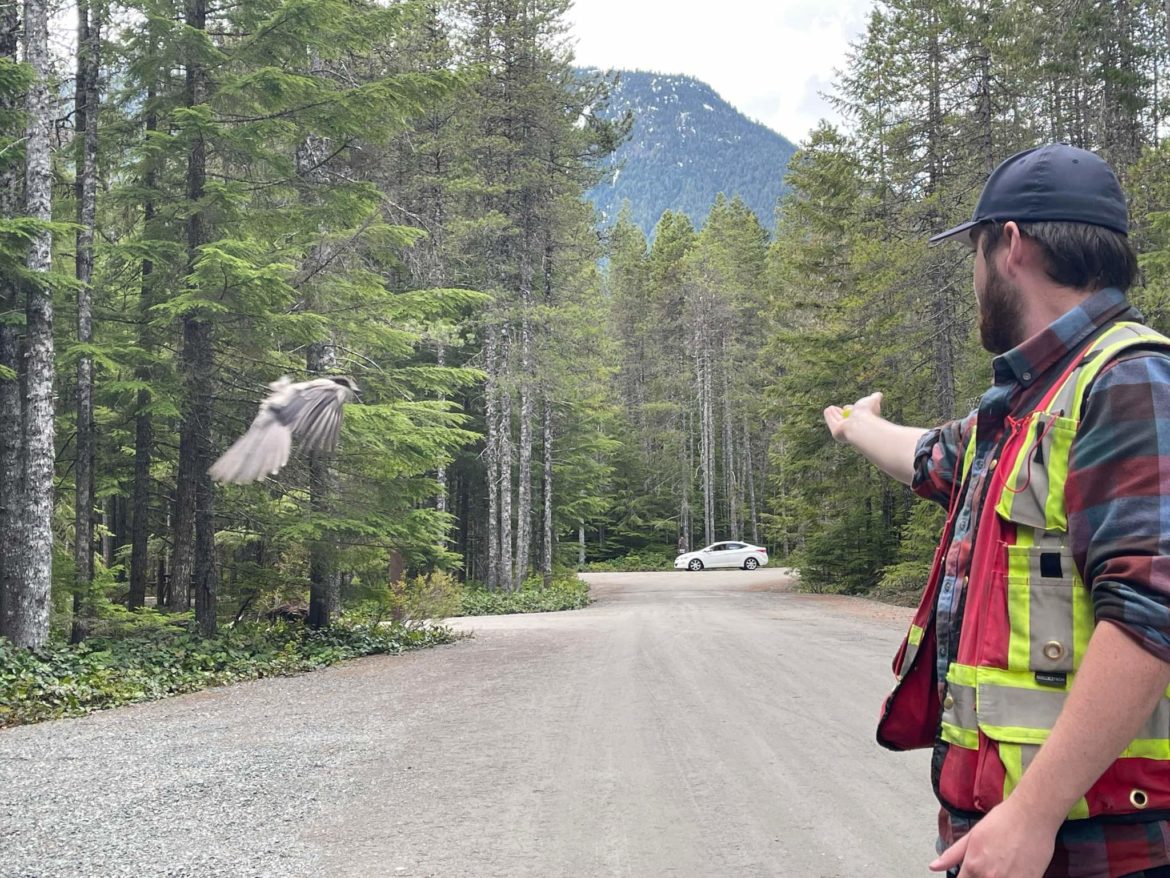
Briana: The Surrey action team has had a lot of really great sites. The most memorable so far this year is Pacific Spirit Regional Park in Vancouver. We were involved in mapping and treating large and small bunches of Holly, laurel, and blackberry. It gave us a great sense of our purpose in an ecological restoration area, gaining mapping experience and knowing our work was making a difference. It was super memorable too because we got caught in an absolute downpour. When we finished work, everyone was dripping! This was great as we worked really hard during the downpour, and it really showed how amazing everyone’s work ethic is.
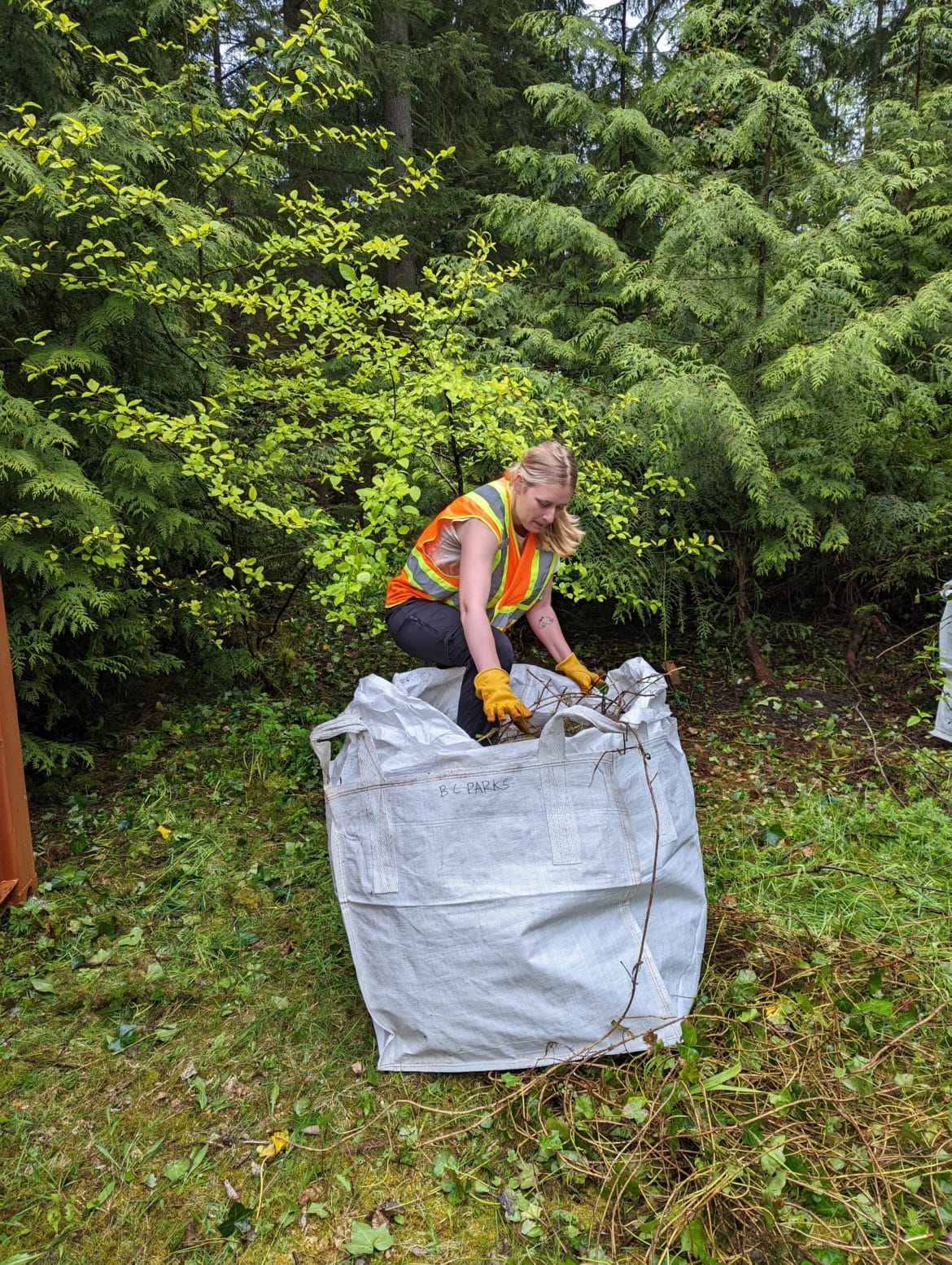
What advice would you give to someone who wants to pursue environmental work?
Lindy: If you have the desire to help the environment, no matter how big or how little, just follow your passion, because the rewards you receive from mother nature are more than you can imagine.
Callie: Volunteer! Find the things that you are passionate about and do what you can to get involved. Read books and articles and become knowledgeable about what you want to pursue before you go to Uni if that is your decision. The more real-world experience and networking you do, the more you will succeed
Torin: Volunteer with a local non-profit, whether they are focused on invasive species, salmon habitat, or species at risk. All non-profits are looking for passionate volunteers, to bring their experience and knowledge. It is a great way to get amazing work experience without paying for school. I finished my Bachelors of Science in ecological restoration, but still find I get more out of the two-day volunteer workshops that many non-profits put on around fish sampling, plant surveying, bird counts, and so much more.
Briana: My advice for someone who wants to work in the environmental field is to get field experience and choose to study something you’re interested in. The field experience helps tremendously because you will gain a range of different skills that will apply to many of the jobs you’re seeking. Choosing something you love to study is important too, as there are so many different programs out there, and many of them will land you a job in the environment field, not just an environmental science degree.
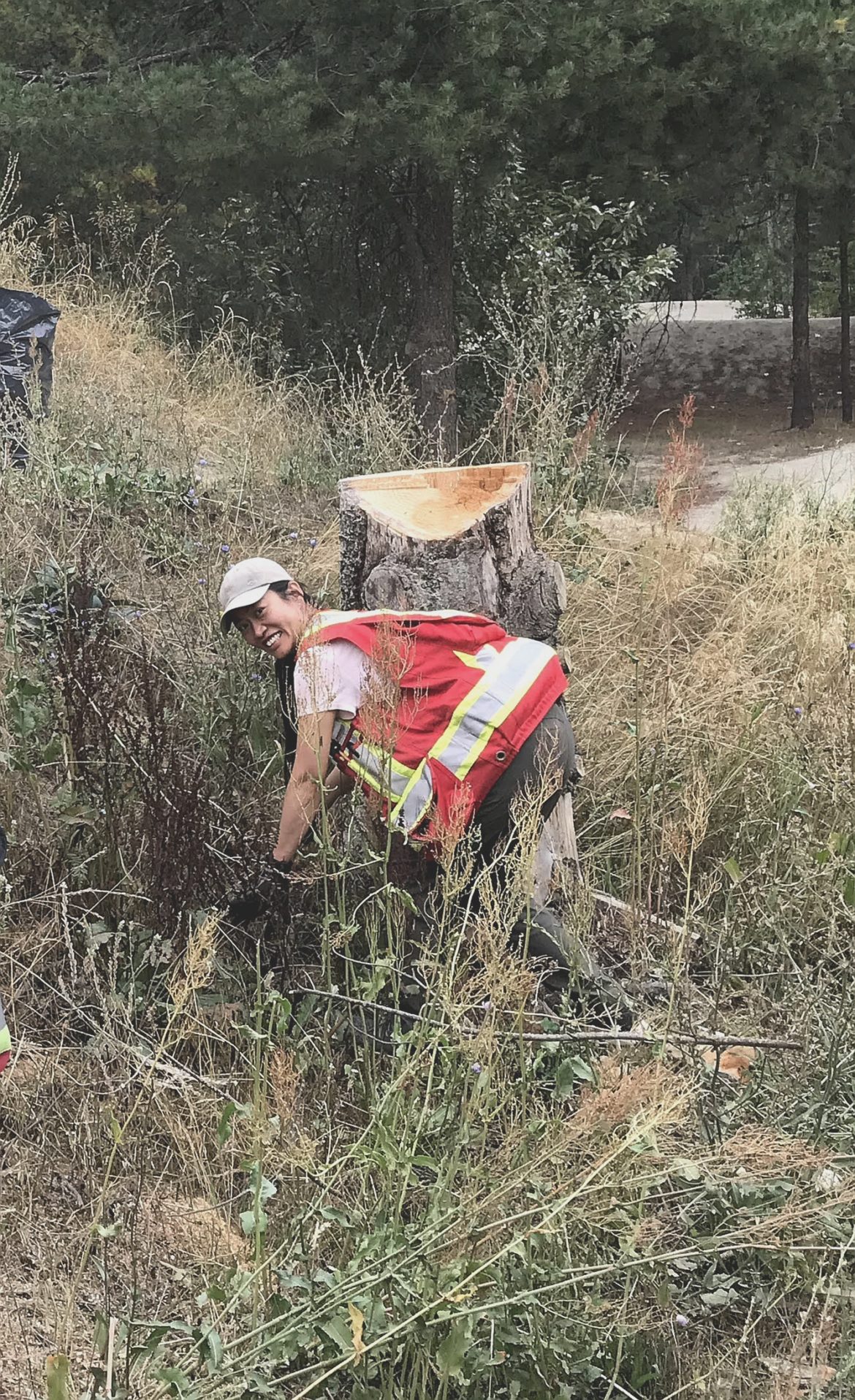
What is your favourite song or podcast to listen to while completing field work?
Lindy: We don’t often listen to music or podcasts because our work sites are usually where the wildlife like to hang out, so we need to pay attention to our surroundings, and each other. Besides, we have nature to listen to, that’s our best choice of music or podcasts.
Callie: I love to listen to either audio books or podcasts. Ologies is a great podcast as you learn something new every time. For audio books it’s a great time to catch up on books I want to read or this month’s book club pick!
Torin: Podcast: Ologies, song: Things I Thought Were Mine – Alfie Templeman
Briana: I have two. Ologies is a great podcast as it goes over a bunch of different science topics for each episode. I also love this podcast will kill you. It’s all about different health issues that humans have faced and all the facts about it. I find it super fascinating!
Across BC, Canada and the world, invasive species pose the second greatest threat to biodiversity after habitat loss. Experience with our Stronger BC Action Teams gives people looking for work in this province skills in invasive species management, setting them up for success in the environmental protection field.
Ksenia is a Community Science Coordinator with ISCBC. She is passionate about nature conservation and taking film photos of the beautiful natural landscapes of BC. You can reach Ksenia at operations.coord@bcinvasives.ca.
Share


